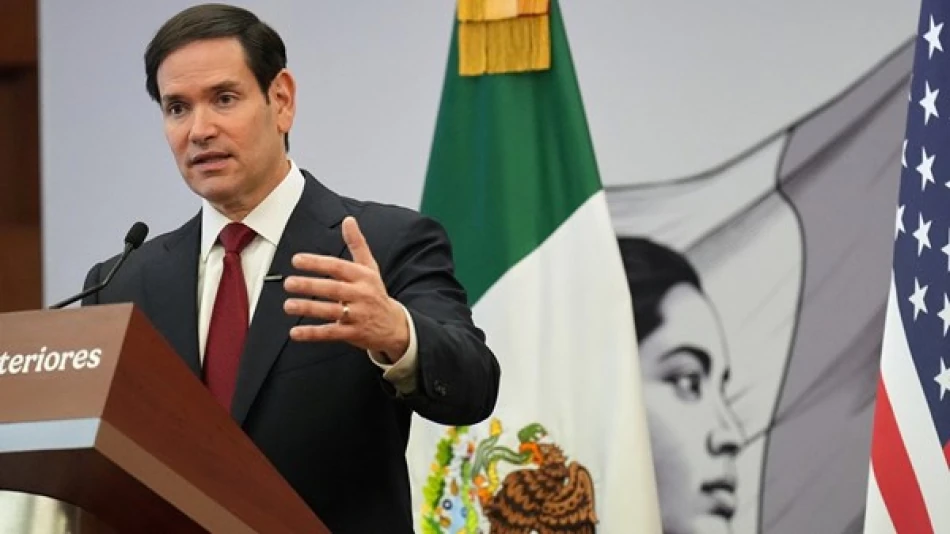
US to Intensify Crackdown on Drug Smuggling Boats, Says Rubio
Trump Administration Escalates Anti-Cartel Operations with Caribbean Boat Strike
The United States has launched direct military action against suspected drug trafficking operations, with Secretary of State Marco Rubio confirming that a Venezuelan gang-linked vessel was targeted in the Caribbean. The strike signals a dramatic shift toward more aggressive enforcement tactics under President Trump's renewed administration, marking a potential escalation in America's decades-long war on drugs.
Immediate Action Signals Policy Shift
Speaking to journalists during an official visit to Mexico City on Wednesday, Rubio made clear that the Caribbean boat strike was just the beginning of a more confrontational approach. "President Trump blew it up and it will happen again, in fact it might be happening right now," Rubio stated, suggesting ongoing operations against cartel assets.
The timing of Rubio's remarks during his Mexico visit is particularly significant, as it demonstrates the administration's willingness to discuss aggressive anti-cartel measures directly with regional partners who have traditionally favored diplomatic solutions over military intervention.
Breaking from Traditional Enforcement Models
This direct targeting of suspected cartel vessels represents a notable departure from previous U.S. approaches, which typically relied on interdiction, seizure, and arrest rather than destruction of assets. The shift mirrors tactics used in counterterrorism operations, suggesting the administration views major drug cartels as quasi-military threats requiring similar responses.
Regional Implications for Mexico Relations
Rubio's decision to announce this escalation while on Mexican soil sends a clear message about expected cooperation levels. Mexico has historically been sensitive about U.S. military operations in the region, preferring sovereignty-respecting joint law enforcement efforts. The public nature of these comments suggests either strong Mexican buy-in or American willingness to proceed unilaterally.
Strategic Targeting of Venezuelan Networks
The focus on Venezuelan gang operations reflects broader geopolitical tensions, as criminal organizations have flourished amid Venezuela's ongoing political and economic crisis. These groups have increasingly expanded their reach throughout the Caribbean and into Central America, creating what U.S. officials view as a direct threat to regional stability.
The targeting also aligns with the administration's broader pressure campaign against the Venezuelan government, using anti-crime operations to address what officials frame as state-sponsored or state-enabled criminal enterprises.
Operational Questions and Future Scope
Rubio's suggestion that similar operations "might be happening right now" indicates a potentially ongoing campaign rather than isolated incidents. This raises questions about the scope of authorization, target selection criteria, and coordination with regional partners beyond Mexico.
The Caribbean's complex maritime jurisdiction creates both opportunities and challenges for such operations, as numerous island nations maintain varying levels of cooperation with U.S. law enforcement while jealously guarding their territorial waters.
Measuring Success Beyond Symbolic Strikes
While dramatic, individual boat strikes are unlikely to significantly impact overall drug trafficking flows, which have proven remarkably resilient to interdiction efforts over decades. The real test will be whether this approach can disrupt higher-level cartel operations or merely forces tactical adjustments in smuggling routes and methods.
The administration's willingness to publicize these operations suggests confidence in both their legal justification and their potential to deter cartel activities through demonstration effects rather than purely operational impact.
Most Viewed News

 Layla Al Mansoori
Layla Al Mansoori






